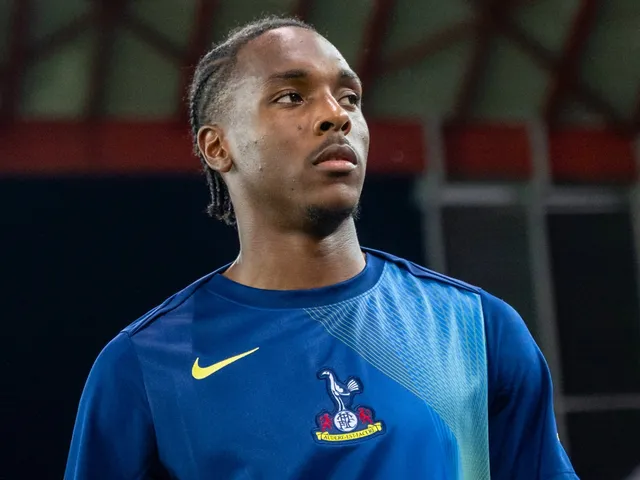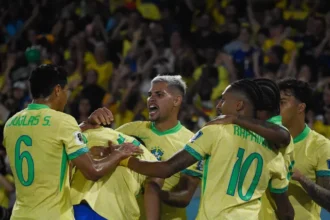A Persistent Challenge for Tottenham Hotspur
Tottenham Hotspur is grappling with a recurring issue that has been haunting the club for some time: the integration of home-grown talent into the first team. This challenge has recently come into sharp focus after Brentford manager Thomas Frank made the decision to leave out several summer signings from his Champions League squad. As Spurs continue to navigate the complexities of squad depth and talent development, questions arise about their long-term strategies and performance outcomes.
The Home-Grown Dilemma
Tottenham have often prided themselves on their youth academy, which has produced notable talents over the years. However, the transition from youth to first-team regular has been a daunting task for many emerging players. This situation bears resemblance to what Brentford is now facing. Frank’s choices highlight the difficulties that clubs encounter in balancing new signings with developing their own home-grown players.
The captain of Brentford acknowledged the importance of consistency and teamwork, emphasizing the need for certain players to find their rhythm within the squad. As clubs prioritize immediate results, the tendency can shift toward experienced signings, sidelining the younger, home-grown options. This results in a talent bottleneck, obstructing the pathway for exciting prospects to break through.
Implications for Tottenham
The departure of established players and the eagerness for fresh talent have left Spurs in a precarious position. The club is not merely wrestling with tactical issues, but also with the weighty expectation of player development. With a growing emphasis on big-name signings, there’s an evident risk of neglecting their Academy system.
In the case of Tottenham, the failure to incorporate young talents effectively raises questions about their scouting and development strategies. Players who shine at the youth level may struggle to find a place in a squad that increasingly prioritizes experienced recruits. For instance, despite the promising skillset certain players display in youth competitions, they often find themselves sitting on the sidelines rather than contributing meaningfully to the first team.
Comparison to Other Clubs
Clubs like Brentford, which have successfully blended youth with experience, can serve as a case study for Tottenham. Under Frank, Brentford has been able to create a squad that utilizes younger players while still bringing in new talent. Those in the football community are taking note: Brentford’s ability to integrate summer signings without sidelining home-grown players could offer a model for Spurs to emulate.
Tottenham must analyze their approach in comparison to clubs that manage a more harmonious blend of academy graduates alongside their new acquisitions. A more strategic decision-making framework could allow them to leverage their youth system while still strengthening their squad through targeted signings.
Navigating the Champions League
For Spurs, the Champions League poses an additional layer of complexity. Competing at the highest level necessitates not only a strong starting eleven but also the ability to utilize squad depth effectively. It’s crucial that players can step in seamlessly when injuries or suspensions arise. However, if many of the club’s new signings are unable to participate due to these strategic choices, the team might face significant challenges when the fixtures pile up.
Not having sufficient depth can hinder Spurs’ ability to progress in critical tournaments like the Champions League. This adds pressure on the manager who may feel compelled to stick with tried-and-tested players, which may yield immediate results but stymies the growth of promising young talents.
The Future Path
Looking ahead, Tottenham’s management will need to devise a better integration strategy for youth and experience. This entails not just paying lip service to the Academy but putting measures in place to actively involve more home-grown players in matchday squads regularly. Transitioning players from youth to senior football requires a supportive structure, including mentorship from senior players and tailored development programs.
Clarity in communication regarding roles and pathways could motivate younger prospects to remain at the club rather than seek opportunities elsewhere. Sharing success stories of players who successfully made the jump from the youth academy to the first team could help inspire the next generation.
Conclusion
Recognizing and addressing the issues surrounding the integration of home-grown players is imperative for Tottenham Hotspur as they strive for success on multiple fronts, particularly in the high-stakes environment of the Champions League. Ignoring this pivotal aspect could spell disaster, as fans increasingly expect their club to represent not only talent on the pitch but also a commitment to cultivating talent from within.
With competition intensifying, Spurs have an opportunity to reassess their strategies and make fundamental changes that could pay dividends in the years to come. By fostering a more inclusive environment, they can ensure that both new signings and home-grown talents contribute to a successful, cohesive squad—one that can rise to the challenges ahead while staying true to its roots.





